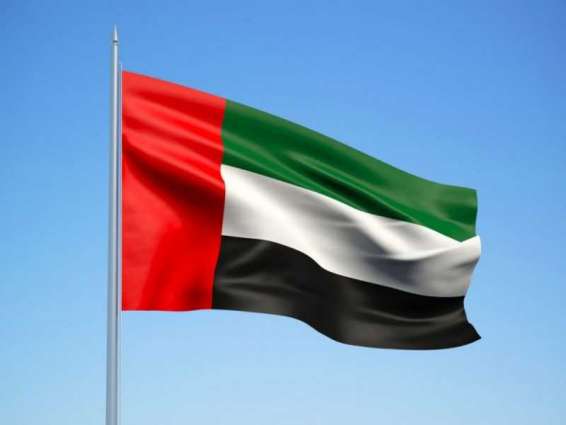ABU DHABI, (Pakistan Point News - 07th Sep, 2020) In recent decades, the UAE has achieved an educational milestone that enabled it almost eradicate illiteracy at a local level and to address educational issues in many Arab countries.
It has also been competing globally in the areas of science and knowledge, in addition to preparing Emirati experts in the fields of space, renewable energy and many other rare scientific specialisations.
The UAE has launched many projects aimed at combatting illiteracy in the Arab region, and its initiatives in Yemen, Palestine and various refugee camps have improved educational conditions and reduced illiteracy.
The UAE will join the world in celebrating International Literacy Day on 8th September, as it has successfully established an aware and intellectual community where everyone has the right to learn and can access education, according to the highest international standards. The day aims to highlight the importance of literacy to individuals, communities and societies.
The financial and in-kind aid and support provided by the UAE to relevant international organisations and the governments of countries hosting refugees have helped reduce the intensity of the refugee crisis in terms of the lack of access to education.
In January 2020, the UAE inaugurated Phase II of a project to construct three literacy centres and three centres for the Holy Quran memorisation in Yemen, which can be added to the long list of the country’s humanitarian efforts, including the construction and restoration of schools, institutes and universities and the funding of salaries of educational staff.
Between 2012 and January 2019, the value of the UAE’s educational aid provided in response to the Syria crisis amounted to around AED190.1 million.
In Palestine, the UAE is one of the leading countries that supports the efforts of the United Nations Relief and Works Agency for Palestine Refugees in the Near East, UNRWA, to implement its educational programmes for Palestinian students.
According to the UNRWA, 80 percent of the UAE’s support from 2014 to 2019 was allocated to education, valued at US$164 million.
Since the UAE’s establishment on 2nd December, 1972, its leadership has promoted education and literacy, considering them a strategic goal of its "Education For All" campaign. The country has opened schools, literacy centres, adult education centres, women’s development associations and social development associations to eradicate illiteracy.
Education is the right of every citizen. It is paid for by the government in public schools and institutions. The UAE Government issued Federal Law No. 11 of 1972 concerning Compulsory Education obligating the parent or the legal guardian to send their children to school.
The UAE grants all its citizens the right to access education and covers the educational costs for all public educational establishments and its laws stipulate that education is mandatory until the secondary stage.
The UAE occupied the first position internationally in the category of "Percentage of Foreign Higher Education Student Enrolment," as well as the "Rate of Completing the Elementary Stage in Schools" and "Presence of International Students," according to the International Innovation Index of the INSEAD business School in 2018 and the Legatum Prosperity Index, respectively.
The UAE Government introduced a law on compulsory education and launched several initiatives to promote education in the UAE and the Arab region.
The UAE Cabinet approved a law in July 2012 that makes it compulsory for children to start schooling at the age of six and remain in school until they complete Grade 12 or reach the age of 18, whichever occurs first.
Today, the UAE offers a comprehensive education to every Emirati male and female student from kindergarten to university.
The Literacy Challenge in the Arab World, launched by His Highness Sheikh Mohammed bin Rashid Al Maktoum, Vice President and Prime Minister of the UAE and Ruler of Dubai in 2017, seeks to benefit 30 million Arab youths and children by the year 2030.
Following the announcement of 2016 as the Year of Reading, the Cabinet issued directives to prepare an integrated National Literacy Strategy and a framework to produce a reading generation. The national literacy strategy aims to ensure that all youth and a substantial proportion of adults, both men and women, achieve literacy and numeracy.
The ‘Reading Nation’ campaign, part of Mohammad Bin Rashid Al Maktoum Global Initiatives and is another step through which the UAE expresses its passion for serving humanity and aims to distribute 5 million books to children in refugee camps and schools around the world.
The Arab Reading Challenge, a literacy initiative launched in 2015 by the Mohammed bin Rashid Global Initiatives, with the aim of encouraging children in the Arab world to read 50 million books through a series of prizes and incentives for children, faculties and educational institutions.
International Literacy Day 2020 focuses on "Literacy teaching and learning in the COVID-19 crisis and beyond," especially on the role of educators and changing pedagogies. The theme highlights literacy learning in a lifelong learning perspective, and therefore, mainly focuses on youth and adults.




